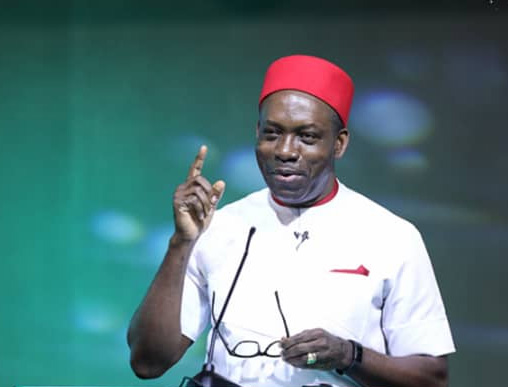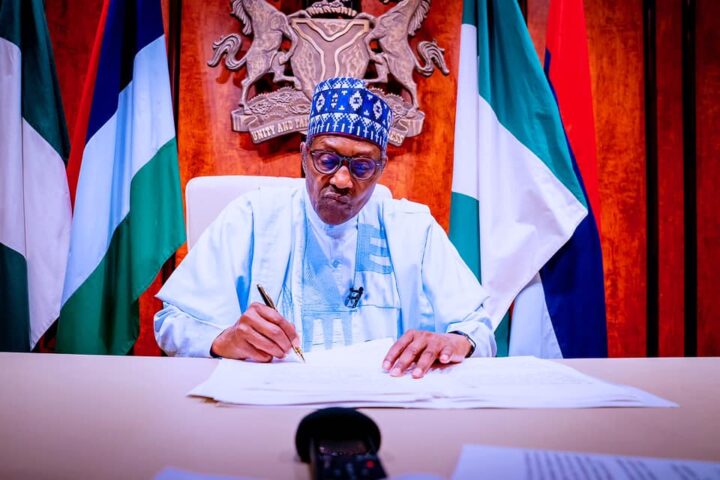Emmanuel Osodeke, national president of the Academic Staff Union of Universities, a few days back revealed an aspect of Nigerian university lecturers’ negotiation with the federal government that many of us probably didn’t know. He disclosed how the union rejected the government’s plan to increase school fees of all university students to N1 million during its last negotiations with lecturers.
Speaking at a one-day ‘state of the nation summit’ organised for ASUU members by the Bauchi zone of the union, Osodeke also said the government’s plan was to open an education bank and give each student a loan of N1 million annually at five percent interest rate to sponsor themselves in school and then pay back when they graduate and start working.
Osodeke said that if the union had accepted the offer, people would have accused its members of fighting for their personal interests and not the collective good of Nigerians.
I quite understand ASUU’s point of view and can imagine its dilemma. It is inconceivable that a government that has offered free university education for over six decades could think of introducing a million naira fee per session, especially in a country where the majority live below $1 per day. At least, one would have expected the government to start small if it is serious about doing anything at all. I guess the FG was not bold enough to do what it ought to do and was only trying to tie its decision around ASUU’s neck so that the union could take the blame for its action.
Advertisement
Indeed, the issue of tuition in federal government-owned universities and other higher institutions in Nigeria is a sensitive subject. It is something people avoid talking about. Government is afraid to touch it for the fear of uproar it might generate. Student union bodies, ASUU and others avoid it like the plague. As strong-willed as Olusegun Obasanjo was as Nigeria’s president, he also vehemently opposed the idea when he was advised to do so. Not because he didn’t know it was the right thing to do, but because he was afraid of the backlash.
You can’t blame him. It was during his military-led regime that Jibril Aminu, the then secretary of the Nigerian University Commission announced that students would pay extra fees due to the high cost of living in the country. This led to the famous ‘Ali must go’ protest which today is described as one of the most violent student agitations in Nigeria. That protest was also reputed to have sparked the greatest political crisis of the 1975-1979 Mohammed/Obasanjo military administration. So, as civilian president, Obasanjo didn’t want to deal with the problem of another crisis over tuition in Nigerian universities. He said he would prefer to push that decision to others to take. Unfortunately, none of his successors has got enough nerves to dare it since he left office.
I am also expecting a great deal of backlash from the public against the position I am taking on this matter but that’s fine by me. We need to be frank with ourselves. If we truly yearn for world-class universities, we must be ready to do what it takes to get a world-class education. There is no place in the world where university education is cheap. It is either the students pay or government finances it through heavy taxes. Researching into technological innovations cost money.
Advertisement
After all, the foreign countries those Nigerians rush to for their higher education also make their own citizens pay for this service. This is in spite of robust funding by both the government and the private sector. Isn’t it a tragedy that as a people we are ready to spend millions of our scarce foreign exchange resources on education in other countries but reluctant to pay for same in our own country?
For example, the United States is glad to remind us that Nigeria has no fewer than 14,000 students in American universities. Nigeria was ranked as the top source of African students in the United States in 2017. Erudera.com, a higher education search platform, says the number of Nigerians studying in the US has increased by about 93 percent in the last 10 years. And to encourage more Nigerians to keep coming to the US for their education, the US has set aside scholarships worth $28 million to woo its students. According to available statistics, Nigerians are spending half a billion dollars annually to school in the US alone.
Overall, Nigerians are said to have spent over $28 billion on foreign education in the last 10 years. Is this not enough to fix whatever rot that could have been in our education sector back home? Have we ever paused as a nation to find out why Nigerian students have become the toast of countries like the US, UK, Canada and the rest? Why are these countries willing to go out of their way to get Nigerian students admitted into their higher institutions? Is it because they love us? The answer is NO.
They dote on us because we have become a huge source of revenue for their education systems. In these countries, foreign students pay far more than the locals. They need our money to keep their systems running. Their own citizens can’t afford the cost of university education. For instance, post-secondary enrollment in the US dropped by 2.9 million from 2019 to 2020. The cost of university education was identified as one of the reasons for the drop.
Advertisement
Interestingly, Nigeria already has enough resources in place that can help students fund their education in government-owned universities and other higher institutions. The only missing link is the political will to do the right thing. The Tertiary Education Trust Fund Act, 2011 imposes a two percent education tax on the profit of all registered companies operating in Nigeria. This is a lot of money that can go into funding loans, grants and scholarships for Nigerian students.
The Tertiary Education Trust Fund, formerly known as Education Trust Fund (ETF) was established as an intervention agency by Education Tax Act No. 7 of 1993 (and subsequently amended in 1998) to intervene at all levels of education in public institutions. But, in 2011, the ETF was renamed TETFund by the ETF Act No. 16 and refocused to intervene in only public tertiary institutions for maximum impact.
Apart from arresting the rot and deterioration in the educational infrastructure in Nigeria’s higher institutions, Tetfund provides grants and scholarships for tertiary institutions’ staff to enhance their productivity and quality of higher education.
Since this fund is already in place by an act of parliament, a way out is to review the law by extending its objectives to providing loans, grants and scholarships for Nigerian students. If students pay tuition, it will increase the money available to run our higher institutions and improve infrastructure and research in our higher institutions. It will further entrench the principle of autonomy as each institution would be able to have greater controls over its finance. Most importantly, it will force the people in government to think. They will have to create jobs for graduates to enable them to repay whatever loan they got to finance their education. Such jobs also obviously can’t be N-POWER job that pays a graduate N30,000 or less. People in government will be forced to create a conducive environment for businesses to thrive. Job creation is a major political issue in developed climes partly because people must keep repaying their loans for others to pay for their education.
Advertisement
The fact that students pay tuition does not mean the government is handing off its responsibility of funding education. Rather, it will only increase the sources of revenue in our higher institutions. Students whose parents are rich enough to sponsor their education can do so. Students from poor homes can have access to loans, grants and scholarships to reduce the burden of repayment. Brilliant students can have access to scholarships. This will stimulate intellectual competition. This is the funding pattern in many developed countries.
This is likely to halt the unnecessary craving for paper certificates as students will carefully evaluate what they stand to gain before investing their time, energy and resources in a degree. Students that think they don’t need a degree to function in life can easily go for alternative studies-certifications, vocational studies, etc. This will reduce the burden of oversubscription and over-enrollment on our higher institutions.
Advertisement
Let’s face it, how many Nigerian lecturers granted scholarships to study abroad on Tetfund scholarships return to the country after their studies. For those who return, how many stay back here? Many of these lecturers are frustrated about the way things are run back home. I learnt of a lecturer that went for his PhD in the UK on Tetfund scholarship. He wanted to practice what he saw over there back home but he couldn’t. In his desperation to make things work, he bought a generator and an interactive whiteboard with his personal money. He was fuelling the generator with his money. In no time he got frustrated and returned to the UK.
Imagine that! What has Nigeria gained? We are not only funding other countries education, but our government is also spending our resources to train lecturers that end up serving foreign countries. What is that? We train doctors, nurses, engineers, scientists — all sorts of experts that end up benefitting other countries. The ones that study courses that these countries don’t care about end up being their cleaners, servants and truck drivers.
Advertisement
I think it is high time we reviewed our stand on payment of tuition in our higher institutions. Countries that offer free higher education pay huge taxes. That is not the case in Nigeria. There are other areas that can be explored for funding loans and scholarships. Stakeholders in the education sector should begin to have a genuine conversation in this area. ASUU and other unions including student unions should review their hard–line stand on tuition in our higher institutions.
Meanwhile, asking students to pay N1 million is ridiculous. These institutions should still be largely funded by the government, so tuition should be low. Essentially, government subsidies should cover the main costs, so students shouldn’t be expected to pay the full price. Government should consider what is workable. Definitely, N1 million is too high. However not paying for higher education at all is suicidal! This is no longer sustainable!
Advertisement
Olabisi Deji-Folutile (PhD) is the editor-in-chief, franktalknow.com and member of the Nigerian Guild of Editors. Email [email protected]
Views expressed by contributors are strictly personal and not of TheCable.







